-
 Bitcoin
Bitcoin $115200
0.71% -
 Ethereum
Ethereum $3716
6.25% -
 XRP
XRP $3.076
5.28% -
 Tether USDt
Tether USDt $0.0000
0.00% -
 BNB
BNB $766.7
1.87% -
 Solana
Solana $168.5
4.16% -
 USDC
USDC $0.9999
0.00% -
 TRON
TRON $0.3326
1.79% -
 Dogecoin
Dogecoin $0.2093
5.14% -
 Cardano
Cardano $0.7543
4.02% -
 Stellar
Stellar $0.4147
4.43% -
 Hyperliquid
Hyperliquid $38.59
0.71% -
 Sui
Sui $3.594
4.51% -
 Chainlink
Chainlink $17.13
5.12% -
 Bitcoin Cash
Bitcoin Cash $558.9
2.49% -
 Hedera
Hedera $0.2519
1.51% -
 Avalanche
Avalanche $22.91
7.05% -
 Ethena USDe
Ethena USDe $1.001
0.00% -
 Litecoin
Litecoin $120.3
10.01% -
 Toncoin
Toncoin $3.419
-4.46% -
 UNUS SED LEO
UNUS SED LEO $8.921
-0.34% -
 Shiba Inu
Shiba Inu $0.00001249
2.39% -
 Uniswap
Uniswap $9.944
8.41% -
 Polkadot
Polkadot $3.728
3.18% -
 Monero
Monero $308.0
1.78% -
 Dai
Dai $0.9998
-0.02% -
 Bitget Token
Bitget Token $4.389
1.58% -
 Pepe
Pepe $0.00001075
2.71% -
 Cronos
Cronos $0.1397
6.39% -
 Aave
Aave $269.7
3.95%
How to open a contract position in Coinbase? What should I pay attention to when setting leverage?
Opening a contract position on Coinbase involves logging in, choosing a contract type, setting leverage, and confirming the trade, while understanding leverage is crucial for managing risk.
Apr 27, 2025 at 11:49 pm
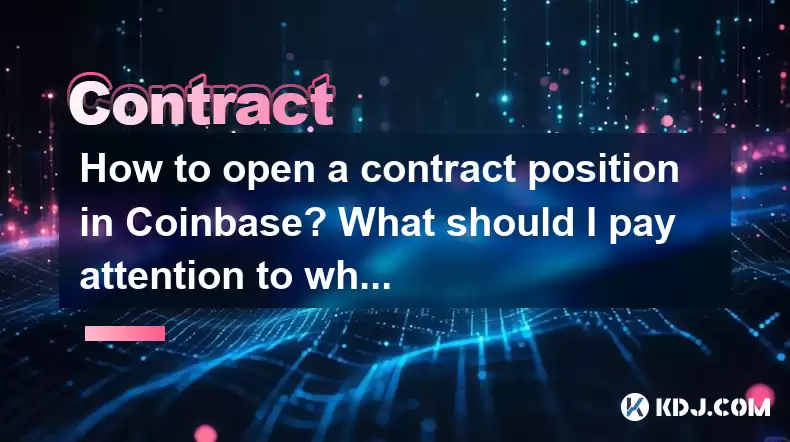
Opening a contract position on Coinbase and understanding the nuances of setting leverage are critical steps for any cryptocurrency trader. This article will guide you through the process of opening a contract position on Coinbase, as well as provide detailed insights on what to consider when setting leverage.
Understanding Contract Positions on Coinbase
Contract positions on Coinbase allow traders to speculate on the price movements of cryptocurrencies without owning the underlying asset. These positions can be leveraged, meaning traders can amplify their exposure to potential gains (and losses) by borrowing funds from the platform. Coinbase offers both perpetual futures and options contracts, giving traders flexibility in their trading strategies.
Steps to Open a Contract Position on Coinbase
To open a contract position on Coinbase, follow these steps:
- Log into your Coinbase account: Ensure you have an active Coinbase account with sufficient funds or margin available.
- Navigate to the trading section: Go to the "Trade" tab on the Coinbase platform, and select "Advanced Trade."
- Choose the contract type: Decide whether you want to trade perpetual futures or options. Perpetual futures are more common for new traders due to their simplicity.
- Select the cryptocurrency: Choose the cryptocurrency you wish to trade, such as Bitcoin (BTC) or Ethereum (ETH).
- Set your position: Decide if you want to take a long position (betting the price will rise) or a short position (betting the price will fall).
- Enter the amount: Specify the amount of the contract you want to open. This can be in terms of the cryptocurrency or the USD value.
- Set the leverage: Choose the leverage level you want to apply to your position. This step will be discussed in more detail in the next section.
- Review and confirm: Double-check all details, including the position size, leverage, and potential liquidation price, then confirm the trade.
Setting Leverage on Coinbase
Setting the right leverage is crucial as it directly affects your potential profits and risks. Here’s what you should pay attention to when setting leverage on Coinbase:
- Understand the leverage ratio: Leverage is expressed as a ratio (e.g., 10:1). This means for every $1 you have in your account, you can control a position worth $10.
- Calculate potential liquidation: Higher leverage increases the risk of liquidation. Coinbase will show you the liquidation price, which is the price at which your position will be automatically closed if the market moves against you.
- Assess your risk tolerance: Consider how much you are willing to lose. Higher leverage can lead to larger losses if the market moves against your position.
- Start with lower leverage: If you are new to trading, it is advisable to start with lower leverage to gain experience and minimize risk.
- Monitor market volatility: Highly volatile markets may require lower leverage to avoid quick liquidations.
Managing Your Contract Position
Once your contract position is open, it’s important to manage it effectively:
- Monitor the position: Keep an eye on the market movements and your position’s performance. Use Coinbase’s tools to set alerts for price levels.
- Adjust leverage if necessary: If the market becomes more volatile or if your risk tolerance changes, you can adjust the leverage on your open positions.
- Set stop-loss and take-profit orders: These orders can help you manage risk by automatically closing your position at predetermined price levels.
- Understand margin calls: If your position moves against you, you may receive a margin call. Be prepared to add more funds or close the position to avoid liquidation.
Risks and Considerations
Trading with leverage on Coinbase carries significant risks. Here are some key points to consider:
- Market risk: Cryptocurrency markets can be highly volatile, and prices can move quickly against your position.
- Liquidation risk: With high leverage, even small price movements can lead to liquidation.
- Funding rates: For perpetual futures, you may need to pay or receive funding rates, which can affect your overall profitability.
- Regulatory changes: Cryptocurrency regulations can change, impacting your ability to trade or hold positions.
Technical Aspects of Trading on Coinbase
To enhance your trading experience on Coinbase, consider the following technical aspects:
- Use trading indicators: Coinbase offers various technical indicators that can help you make informed trading decisions. Familiarize yourself with tools like moving averages, RSI, and MACD.
- Leverage the Coinbase API: For more advanced traders, using the Coinbase API can automate trading strategies and improve efficiency.
- Stay updated with platform updates: Coinbase regularly updates its trading platform. Keep an eye on new features and improvements that could enhance your trading experience.
Frequently Asked Questions
Q1: Can I change the leverage on an existing position on Coinbase?
A1: Yes, you can adjust the leverage on an existing position on Coinbase. To do this, go to the "Positions" tab, select the position you want to adjust, and choose a new leverage level. Keep in mind that changing leverage may affect your liquidation price and margin requirements.
Q2: What happens if I get a margin call on Coinbase?
A2: If you receive a margin call on Coinbase, it means your position has moved against you, and you need to add more funds to your account to maintain the position. If you fail to meet the margin call, Coinbase may liquidate your position at the current market price to cover the losses.
Q3: Are there any fees associated with trading contracts on Coinbase?
A3: Yes, Coinbase charges various fees for trading contracts. These include trading fees, which are a percentage of the trade value, and funding fees for perpetual futures. The specific fees can vary based on your trading volume and the type of contract you are trading. Always check the latest fee structure on Coinbase’s website.
Q4: Can I trade contract positions on Coinbase using a mobile app?
A4: Yes, Coinbase offers a mobile app that allows you to trade contract positions. The app provides similar functionality to the desktop version, including the ability to open and manage positions, set leverage, and monitor market movements. However, some advanced features might be more accessible on the desktop platform.
Disclaimer:info@kdj.com
The information provided is not trading advice. kdj.com does not assume any responsibility for any investments made based on the information provided in this article. Cryptocurrencies are highly volatile and it is highly recommended that you invest with caution after thorough research!
If you believe that the content used on this website infringes your copyright, please contact us immediately (info@kdj.com) and we will delete it promptly.
- Cryptocurrency, Altcoins, and Profit Potential: Navigating the Wild West
- 2025-08-04 14:50:11
- Blue Gold & Crypto: Investing Disruption in Precious Metals
- 2025-08-04 14:30:11
- Japan, Metaplanet, and Bitcoin Acquisition: A New Era of Corporate Treasury?
- 2025-08-04 14:30:11
- Coinbase's Buy Rating & Bitcoin's Bold Future: A Canaccord Genuity Perspective
- 2025-08-04 14:50:11
- Coinbase's Buy Rating Maintained by Rosenblatt Securities: A Deep Dive
- 2025-08-04 14:55:11
- Cryptos, Strategic Choices, High Returns: Navigating the Meme Coin Mania
- 2025-08-04 14:55:11
Related knowledge
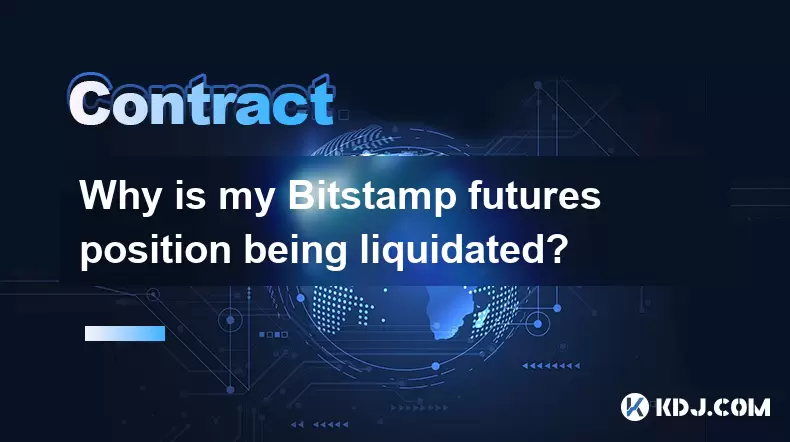
Why is my Bitstamp futures position being liquidated?
Jul 23,2025 at 11:08am
Understanding Futures Liquidation on BitstampFutures trading on Bitstamp involves borrowing funds to open leveraged positions, which amplifies both po...
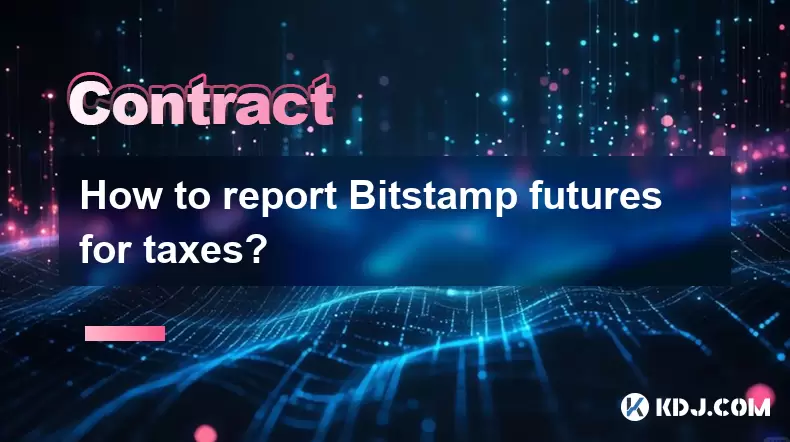
How to report Bitstamp futures for taxes?
Jul 30,2025 at 08:35am
Understanding Bitstamp Futures and Taxable EventsWhen trading Bitstamp futures, it’s essential to recognize that these financial instruments are treat...
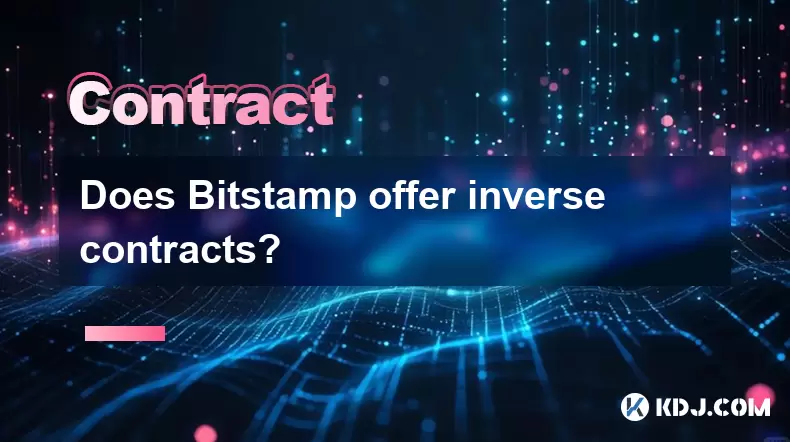
Does Bitstamp offer inverse contracts?
Jul 23,2025 at 01:28pm
Understanding Inverse Contracts in Cryptocurrency TradingIn the realm of cryptocurrency derivatives, inverse contracts are a specific type of futures ...
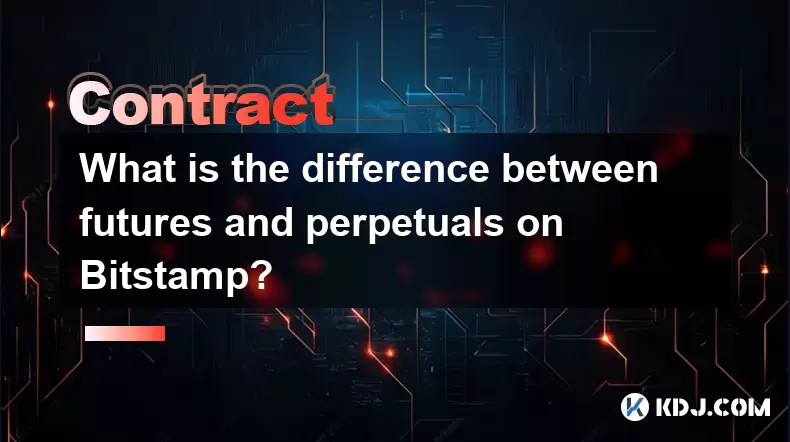
What is the difference between futures and perpetuals on Bitstamp?
Jul 27,2025 at 05:08am
Understanding Futures Contracts on BitstampFutures contracts on Bitstamp are financial derivatives that allow traders to speculate on the future price...

How to find your Bitstamp futures trade history?
Jul 23,2025 at 08:07am
Understanding Bitstamp and Futures Trading AvailabilityAs of the current state of Bitstamp’s service offerings, it is critical to clarify that Bitstam...
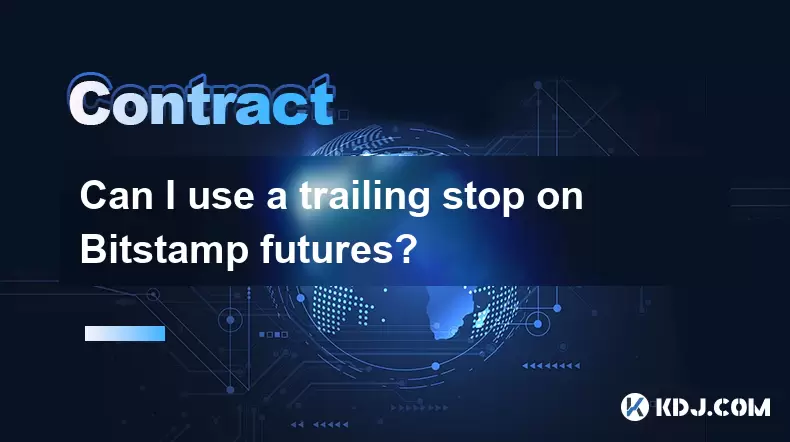
Can I use a trailing stop on Bitstamp futures?
Jul 23,2025 at 01:42pm
Understanding Trailing Stops in Cryptocurrency TradingA trailing stop is a dynamic type of stop-loss order that adjusts automatically as the price of ...

Why is my Bitstamp futures position being liquidated?
Jul 23,2025 at 11:08am
Understanding Futures Liquidation on BitstampFutures trading on Bitstamp involves borrowing funds to open leveraged positions, which amplifies both po...

How to report Bitstamp futures for taxes?
Jul 30,2025 at 08:35am
Understanding Bitstamp Futures and Taxable EventsWhen trading Bitstamp futures, it’s essential to recognize that these financial instruments are treat...

Does Bitstamp offer inverse contracts?
Jul 23,2025 at 01:28pm
Understanding Inverse Contracts in Cryptocurrency TradingIn the realm of cryptocurrency derivatives, inverse contracts are a specific type of futures ...

What is the difference between futures and perpetuals on Bitstamp?
Jul 27,2025 at 05:08am
Understanding Futures Contracts on BitstampFutures contracts on Bitstamp are financial derivatives that allow traders to speculate on the future price...

How to find your Bitstamp futures trade history?
Jul 23,2025 at 08:07am
Understanding Bitstamp and Futures Trading AvailabilityAs of the current state of Bitstamp’s service offerings, it is critical to clarify that Bitstam...

Can I use a trailing stop on Bitstamp futures?
Jul 23,2025 at 01:42pm
Understanding Trailing Stops in Cryptocurrency TradingA trailing stop is a dynamic type of stop-loss order that adjusts automatically as the price of ...
See all articles

























































































